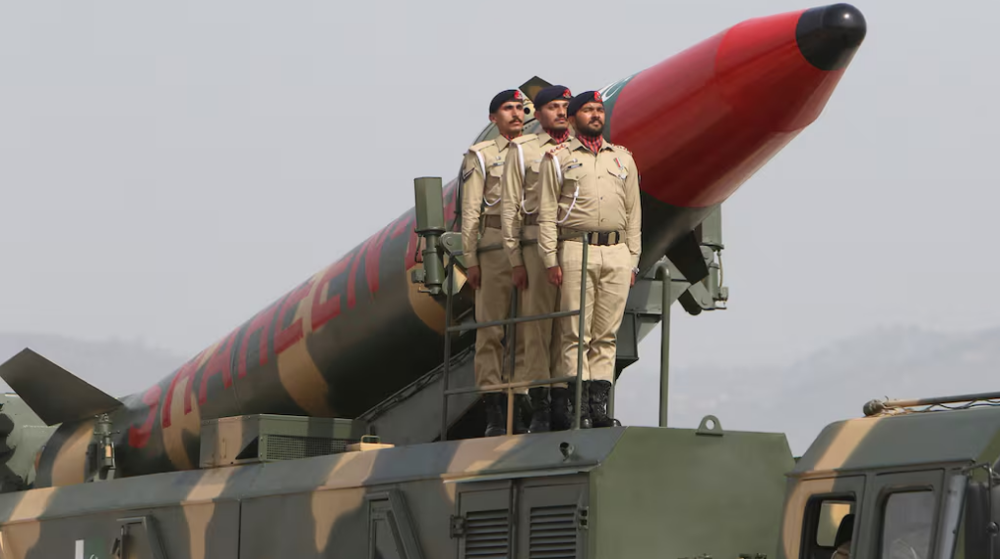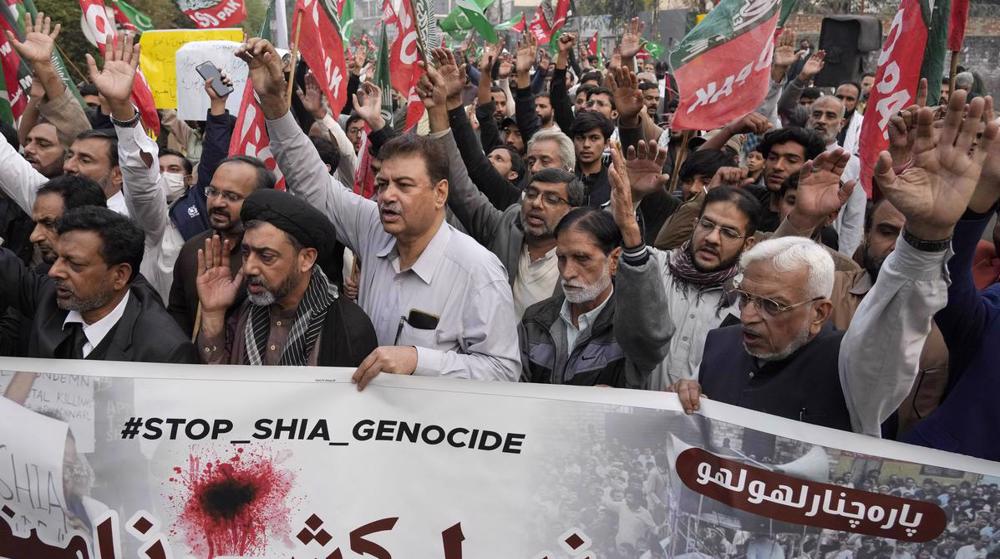Former Pakistani army chief's decision to lead Saudi-led alliance sparks controversy
The appointment of Pakistan's former army chief, General Raheel Sharif, as the commander of a Saudi-led military alliance has sparked controversy in the country.
According to Pakistani media report, the Islamabad government has issued a no-objection certificate (NOC) for Sharif to assume the command of the controversial alliance after an understanding was reached between Pakistan and Saudi Arabia on the matter.
In December 2015, Saudi Defense Minister Deputy Crown Prince Mohammed bin Salman announced the formation of an alliance of Muslim-majority countries, which now numbers 40. Riyadh claims the alliance has been formed to fight extremist groups such as the Daesh Takfiri terrorist group.
Defense Minister Khawaja Asif earlier confirmed that the Pakistani government had cleared Sharif to take up the job as the head of the Riyadh-based military coalition following a formal request from Saudi Arabia.
Foreign Secretary Tehmina Janjua assured a parliamentary committee on Tuesday that the alliance was not against any country.
The controversial appointment has been strongly denounced by some politicians, retired army officers and intellectuals, Shia and moderate Sunni Muslim leaders.
Main opposition parties, including the Pakistan People’s Party (PPP) and Pakistan Tehreek-e-Insaf (PTI), are also skeptical of Sharif’s role in the alliance.
PTI Chairman Imran Khan has tasked parliamentarians of his party with taking the issue to the parliament.
“We strongly oppose this decision and will soon raise the issue in the parliament,” PTI spokesman Fawwad Chaudhry said.
PTI’s senior lawmaker Shireen Mazari responded to reports of the appointment by posting a message on Twitter that read, "This [joining the alliance] will add to sectarian polarization within Pakistan as well as greater regional instability. Parliament's approval should have been sought."
PTI's Ali Muhammad Khan said it was "strange" that the former army chief had remained silent on the topic since it first came to light.
"I want to hear it from the horse's mouth," Khan said, adding, "It is time that we know what this alliance is and on what basis was it formed."
Opposition lawmakers consider the decision a violation of a parliamentary resolution passed in April 2015 that called for Pakistan to maintain a policy of neutrality, particularly in the Saudi aggression against Yemen. The Saudi campaign, which allegedly seeks to restore Yemen's ex-government to power, has killed over 12,000 Yemenis, according to the latest tallies.

Pakistan had initially found itself in the crosshairs as Saudi Arabia named it as part of its newly formed military alliance, without first getting its consent.
After initial ambiguity, Islamabad later confirmed its participation in the alliance. The government, however, has refrained from issuing a policy statement on Pakistan’s participation in the Saudi-led coalition .
Meanwhile, Qaumi Watan Party Chairman Aftab Ahmad Khan Sherpao has questioned why Pakistan had agreed to become a member of the Saudi-led coalition without first finding out the aims and objectives of the alliance.
A recent editorial published in Dawn newspaper has questioned the secrecy surrounding the move.
“The secrecy surrounding the move raises many questions about our policymaking process. The argument that the government could not refuse the Saudi request makes us appear more like a client state,” the paper said.
Some political activists have blamed the government of Prime Minister Nawaz Sharif for colluding with some royals from Arab monarchies over the issue. Sharif spent nearly seven years in political exile in Saudi Arabia and has close personal ties with royal families of the Persian Gulf Arab countries.
VIDEO | 444 days of ethnic cleansing
VIDEO | Bethlehem's Christmas dimmed by war, restrictions
Israel admits assassinating Hamas leader, vows to inflict same fate on Yemeni fighters, people
VIDEO | Yemeni forces repel US-British attack, down F-18 Jet
Iran’s capabilities vast; enemy’s ‘maximum pressure’ policies all failed miserably: Senior official
Iran’s economy grew 2.7% y/y in Sep quarter: CBI
VIDEO | Freelancers in Gaza strive to stay online amid genocide
Mikati demands Israel's withdrawal from south Lebanon










 This makes it easy to access the Press TV website
This makes it easy to access the Press TV website